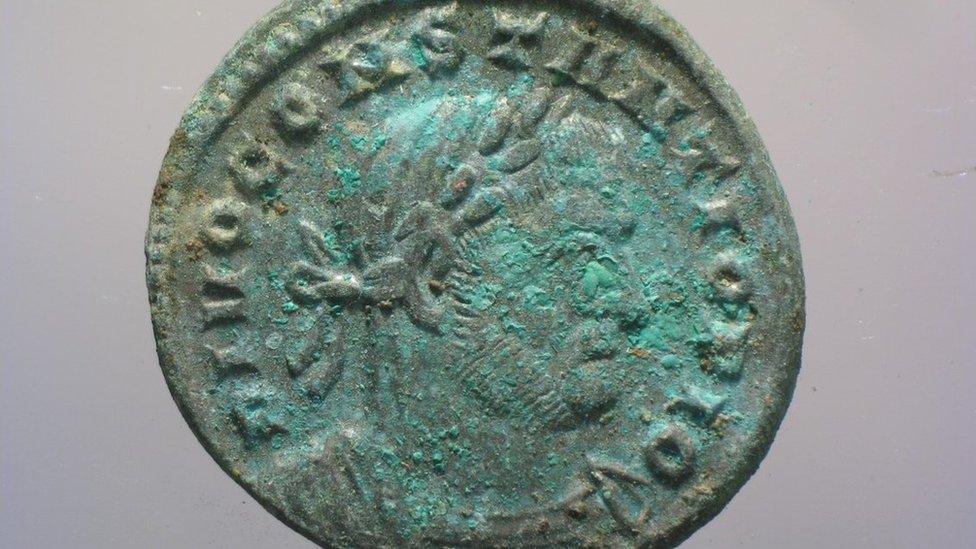Roman coins found near Overton declared treasure
- Published
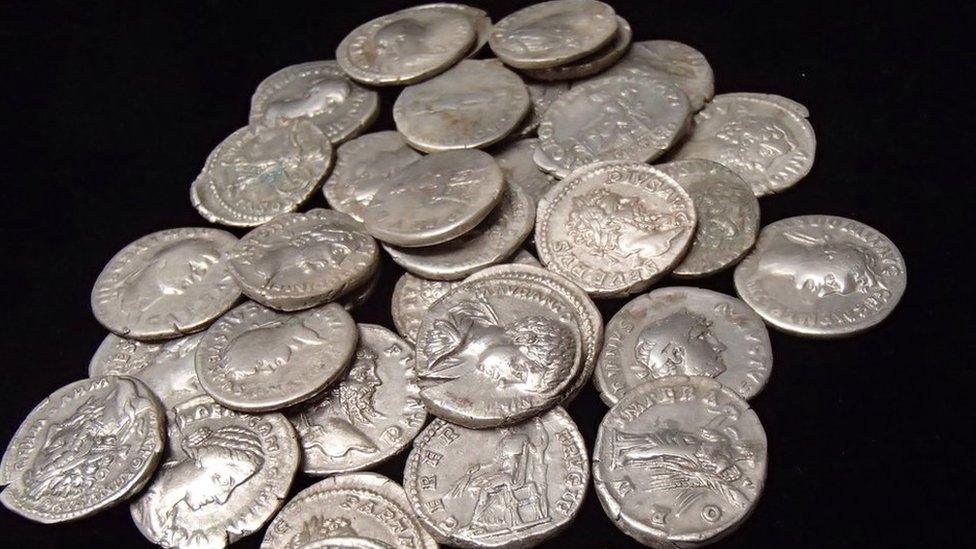
The Overton Hoard was discovered in September 2016 on land near Overton
A collection of 37 silver Roman coins found near York have been declared treasure at an inquest.
The Overton Hoard was discovered in September 2016 on land near Overton together with fragments of pottery.
Some of the coins date back to 69AD and the reign of the Roman Emperor Vespasian, who oversaw the start of work on the Colosseum in Rome.
The Yorkshire Museum said it had expressed a provisional interest in acquiring the as yet unvalued hoard.
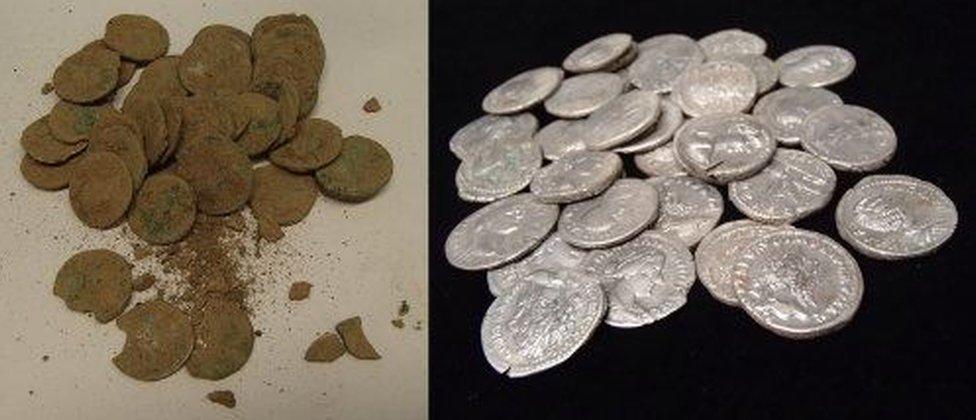
It is thought the coins were buried about 1,800 year ago
The coins were declared as treasure by Michael Oakley, Senior Coroner North Yorkshire East, at a hearing in Northallerton.
Dr Andrew Woods, curator of numismatics at the Yorkshire Museum said: "The Overton hoard was found close to York and it was buried when the town was the centre of the Imperial court.
"Emperor Septimius Severus and his family spent several years in York and it is likely that this hoard was buried while they were in the town.
"Given the hoard's connections to the Emperor and Yorkshire, we have expressed a provisional interest in acquiring it and will await its valuation in the coming months."
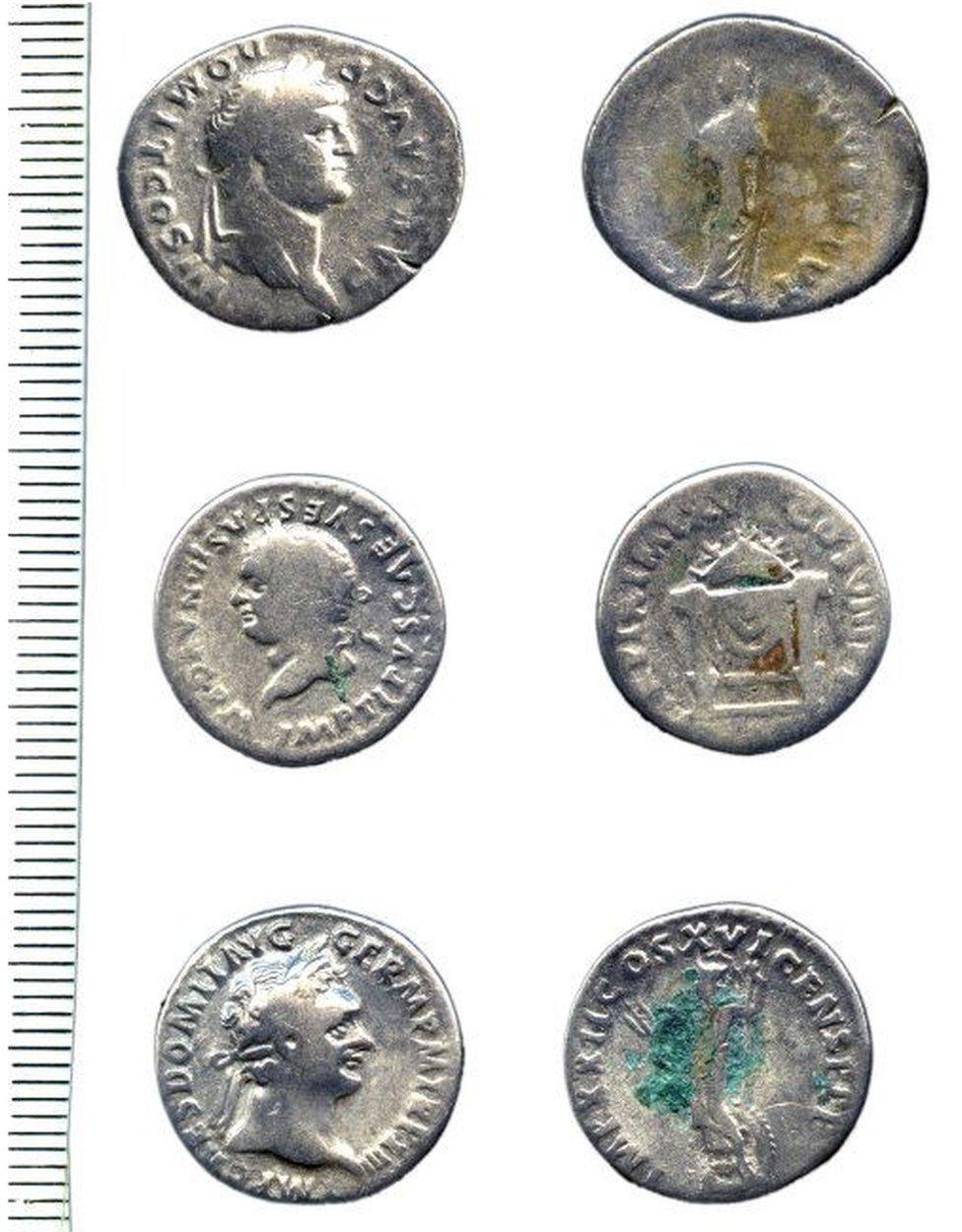
The coins range in date from the reign of Vespasian in 69AD to that of Caracalla which began in 198 AD

What is treasure?
Under the Treasure Act 1996, external, finders of potential treasure in England, Wales and Northern Ireland are legally obliged to notify their local coroner
An inquest then determines whether the finds constitute treasure
The act contains a number of definitions of "treasure", including prehistoric objects, coins that contain gold or silver and are at least 300 years old, or more recent valuable objects that have been deliberately hidden
If the find is declared treasure, the finder must offer it for sale to a museum at a price set by the British Museum's Treasure Valuation Committee
A reward is then offered to the finders and other relevant parties

- Published20 April 2017
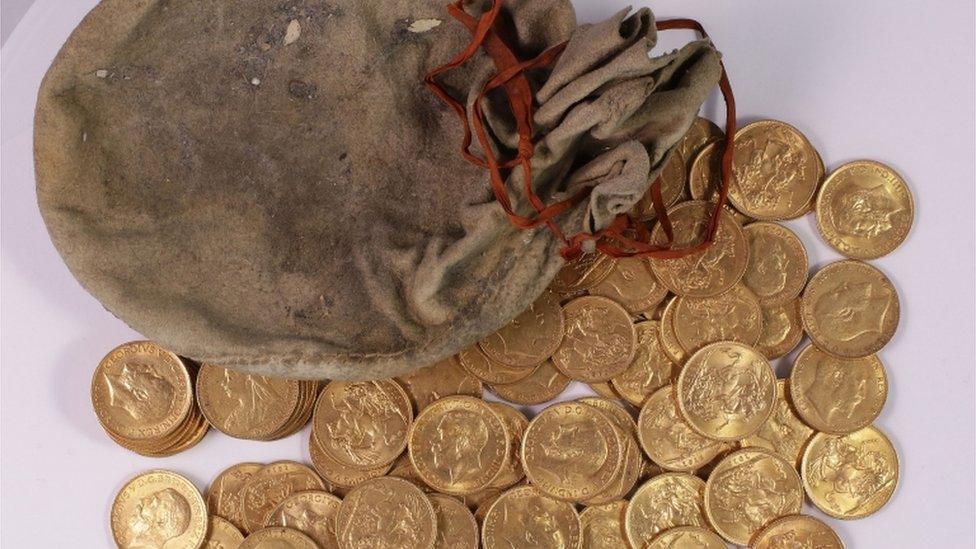
- Published10 November 2016
